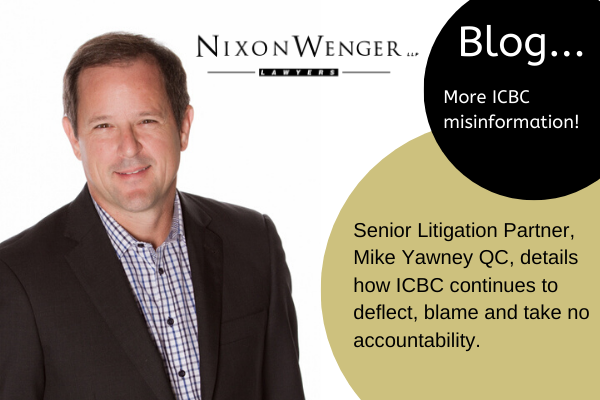
Under the Builders Lien Act, contractors, sub-contractors, workers, and material suppliers are provided with two distinct types of liens. The first type of lien, known as a “builders lien” or a “lien against land”, is a lien against the land and buildings to which the construction professional have contributed labour or materials. The second type of lien, known as the Shimco lien (named after the case that first recognized such a lien in British Columbia) or the “holdback lien”, provides construction professionals with a lien against the holdback funds that should be retained by the person that is next highest in the construction pyramid (i.e. the funds that arise from the required deduction of 10% of the value or material as they are actually provided, or 10% of the amount of any payment made on account of the contract or subcontract).
The rights which flow from both the lien against land and the Shimco lien are powerful tools which enable unpaid construction professionals to seek compensation directly from the owner of the land to which they contributed labour or materials. However, there is a crucial catch: time limits must be respected in order for a construction professional to exercise these lien rights. If the time limits are not respected, lien rights are extinguished.
The Time Limits:
As a practical matter, if a construction professional has not provided any labour or materials to a construction site in 30 days, and payment has not yet been made by the owner, contractor, or subcontractor, that construction professional should consider having a conversation with his lawyer. As discussed below, for both legal and practical reasons, the process needed to exercise both a lien against land or a Shimco lien should be commenced as quickly as possible, as lien rights expire very quickly.
With respect to a traditonal builders lien / lien against land, the timelines that must be respected depend on whether the owner had hired a head contractor (meaning, a contractor that is engaged to perform substantially all of the construction work, or, in other words, a general contractor), whether there is an owner-developer or construction management relationship (i.e. the owner has direct contracts with all construction professionals), and whether the construction project is on a strata lot.
For contracts where the owner had hired a head contractor, construction professionals must file a document, entitled, “claim of lien”, with British Columbia’s Land Title Office, with respect to the land where materials or services were provided. The claim of lien document must be filed 45 days after the earliest of:
1. substantial completion of the head contract;
2. termination of the head contract;
3. abandonment of the head contract;
4. issuance of a certificate of completion for the head contract or any subcontract under which the construction professional had been retained; or
5. for strata lots, the date the strata lot is conveyed to the purchaser or the date that strata unit is occupied.
Similarly, where there is there is an owner-developer or construction management relationship, the claim of lien document must be filed 45 days after the earliest of:
1. substantial completion of the construction project;
2. abandonment of the construction project;
3. issuance of a certificate of completion for any contract or subcontract under which the construction professional had been retained; or
4. for strata lots, the date the strata lot is conveyed to the purchaser or the date that strata unit is occupied.
Though there are a variety of complications that arise from these timelines, the practical questions that should be asked are:
i) has a certificate of completion been issued (this will invariably be issued by a third party engineer or architect) with respect to any part of the project?
ii) has the general contractor completed, abandoned, or terminated its contract with the owner?
iii) has the construction project been completed or abandoned? and
iv) if dealing with a strata lot, has someone bought the lot is living in the unit?
If the answer to any of these questions is “yes”, and, as a construction professional, you are unpaid, your lien rights may be on the way to expiring, and you should quickly seek to speak with your lawyer.
Finally, even after a claim of lien document is filed, an action to enforce that claim of lien, along with an associated certificate of pending litigation, must be filed within one year of the filing of the claim of lien.
With respect to the Shimco lien, the Builders Lien Act provides no express timelines that must be satisfied. However, from a practical perspective, swiftness of foot in advancing the Shimco lien is critical, because the Shimco lien can only be advanced before holdback funds have been dispersed, and the strategic usefulness of the Shimco lien lies in the fact that it can be advanced even when the typical builders lien / lien against land has expired.
The law is quite clear that the Shimco lien is extinguished if the holdback funds have been disbursed before the lien is advanced. As stated by the British Columbia Court of Appeal, in Wah Fai Plumbing & Heating Inc. v. Ma, 2011 BCCA 26:
[40] Shimco does not deal with these circumstances. Nor can the Act be interpreted to provide that where there is no holdback, or a holdback has been wrongfully paid out, a person whose land lien has been extinguished may later commence proceedings to enforce a lien against a nonexistent holdback.
[41] The appellant argues there is no limitation in the Act for enforcing a lien against the holdback. It claims that proceedings to enforce a lien against a holdback may be commenced any time before the holdback is paid out, subject only to the six-year limitation period provided in s. 3(5) of the Limitation Act, R.S.B.C. 1996, c. 266. It argues further, citing s. 4(4) of the Limitation Act, that the amendment to the statement of claim in August 2006 to claim the holdback lien did not have the effect of commencing a new action, and its claim against the holdback should be considered to have arisen when it originally filed the writ and statement of claim in August 2002.
[42] The appellant cites no authority for its suggestion that s. 4(4) of the Limitation Act should be given retroactive effect, and I see no basis in principle to so find in this case. In any event, it would not change the result: the appellant is not entitled to claim a lien against a nonexistent holdback.
Or, in other words, once the holdback funds are gone, they’re gone: The claim associated with the Shimco lien must be advanced before the holdback funds are paid out.
Considered together, the time limits associated with the liens provided under the Builders Lien Act are traps for the unwary. Whether considering a typical builders lien, or whether considering a Shimco lien, construction professionals have limited time to act to ensure that lien rights are not extinguished.
Christopher Hart is an Associate at Nixon Wenger LLP where he enjoys a wide ranging civil litigation practice, with a particular emphasis on estate litigation, commercial litigation, property litigation, and construction law.







